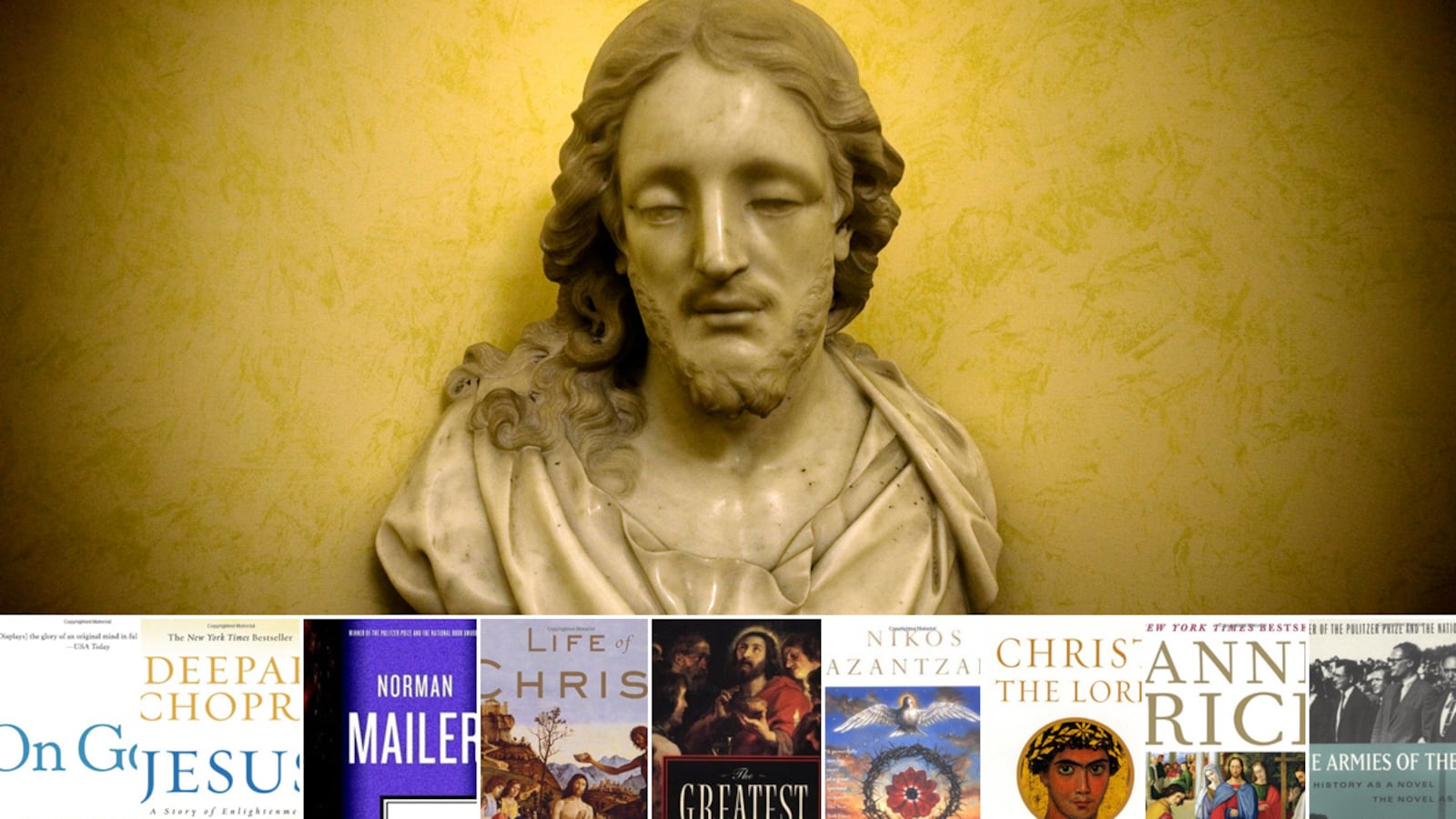It is often lost in the web of commercialization that advertising, television, and retail weave around Christmas, but Dec. 25 is the day when Christians celebrate the birth of Jesus Christ, the Messiah and God who, for an estimated 33 years, walked the world in human flesh.

In addition to inspiring an entire religion, Jesus also inspired many works of fiction. Some are loyal to the account of Jesus’s life told in the Synoptic Gospels, and some take poetic, dramatic, and speculative license. The Jesus novel is a small and largely unrecognized genre of literature that often gives Christians new insight into the story of their savior, and provides non-believers with an artistic means of accessing a tale containing all of the most effective tools of drama—pity, terror, sadness, heroism, tragedy, and redemption.
The biography of Christ is considered “the greatest story ever told.” That superlative phrase is taken from the title of Fulton Oursler’s novel. Published in 1949 to widespread acclaim from the Christian and secular press, it continues to earn new readers each year. Oursler was a Christian who made his trade as a journalist, and although his book is one of the most famous of the Jesus novels, another Fulton—Fulton J. Sheen, an archbishop of the Roman Catholic Church—outdid and outwrote Oursler with his 1977 novel, Life Of Christ. Sheen was a televangelist with a doctorate in philosophy. His gift for communication combined with his philosophical depth enabled him to infuse Life of Christ with rare profundity and power. Sheen was a better writer than Oursler, and he was also a better thinker. His novel effortlessly weaves theology, history, and biblical exegesis into a compelling and challenging work of surprising singularity.
Anne Rice, the popular novelist most famous for the Vampire Chronicles, planned to pull off the same feat with a trilogy of books. Following a return to the Catholicism of her upbringing, Rice wrote Christ The Lord: Out of Egypt, and promised two more in a trilogy. The first book tells the story of Jesus at 7, and gives, in painstaking detail, an account of the religious, political, and social turmoil that surrounded Christ’s childhood in Nazareth. Rice wisely tells the gripping historical drama in the voice of the young Jesus—a voice that empowers her to playfully but seriously counter Christ’s precocious wisdom with his typically boyish naiveté. Christ The Lord: Road To Cana tells the story of Christ’s adult life, which is what is known from the Gospels, from his first miracle (transforming water to wine at a wedding) to his wrestling with Satan’s temptation in the wilderness. Rice is a gifted stylist and master storyteller. Her then-newfound devotion to Catholicism summoned her talents for a sincere reminder of the soul-stirring capacity of the Gospel. Unfortunately, she has yet to finish the trilogy. Her membership in the Catholic Church was short lived, and although she claims to still be a follower of Jesus, her exit from the church seems to have extinguished her fire.
The New Age medical guru Deepak Chopra is not a noted novelist. In fact, if Rice were so inclined, she could probably write a grocery list more poetic than Chopra’s poetry. Jesus: A Story of Enlightenment, however, is one of the most interesting, unconventional, and ambitious books about Jesus. Chopra tracks Christ throughout his teenage years and 20s, the period of his life not covered by the Gospels. He has Jesus discovering principles of Eastern philosophy in his search for enlightenment, and presents Jesus as making the spiritually heroic choice to lead others to wisdom, even if it meant subverting the dominant ethos and order of his era. Chopra should have written a nonfiction book of speculative essays on Christ, because for all the insight and surprise of his Christological narrative, the strange dialogue, which is alternatively stilted or purple, and awkward scene transitions are often distracting.
Nikos Kazantzakis had no problems writing a moving novel of beauty, profundity, and luminosity. The Last Temptation of Christ is one of the most famous Jesus novels in large part due to a film adaptation by Martin Scorsese. Kazantazakis was a Greek writer and philosopher who also wrote a novel on St. Francis. The Last Temptation of Christ generated high voltage controversy for the ways in which it deals with Jesus as a man and not as a god. Kazantazakis bravely and boldly presented Christ in the flesh, and marked that flesh with the human stain—this Jesus is consumed by rage, envy, and lust, but Kazantzakis tempers his human portrait by celebrating Jesus’ decision to accept his fate and act as the Messiah. Kazantzakis’s novel struggles with how one is to interpret Jesus, just as his Jesus struggles.
The best novel about Jesus also came after a life of struggle with the meaning of Christ. Norman Mailer was raised a Jew and devoted to a unique set of beliefs in an interventionist God that he explains in the interview collection On God. He wrote the short The Gospel According to The Son, where his artistic courage is on full display. Jesus narrates the book in the first person, and it possesses a mystery that eludes other messianic efforts. Mailer’s sense as a dramatist, and perpetual struggle with Christianity—which he wrote about in The Armies of the Night—allowed him to cast a spell. The dark magic reintroduces them to the radicalism of Christ. Mailer’s Jesus opposed two systems of power—the Roman Empire and the Jewish Pharisees—and was a beautiful but frightening political dissident and apocalyptic preacher.
Mailer claimed that after rereading the Gospels in the early 1990s, he realized that it was indeed the “greatest story ever told.” But it wasn’t told in the greatest way. He thought it needed a novelist’s delicate touch. Although many others have tried, he turned out to be the man for the job.






